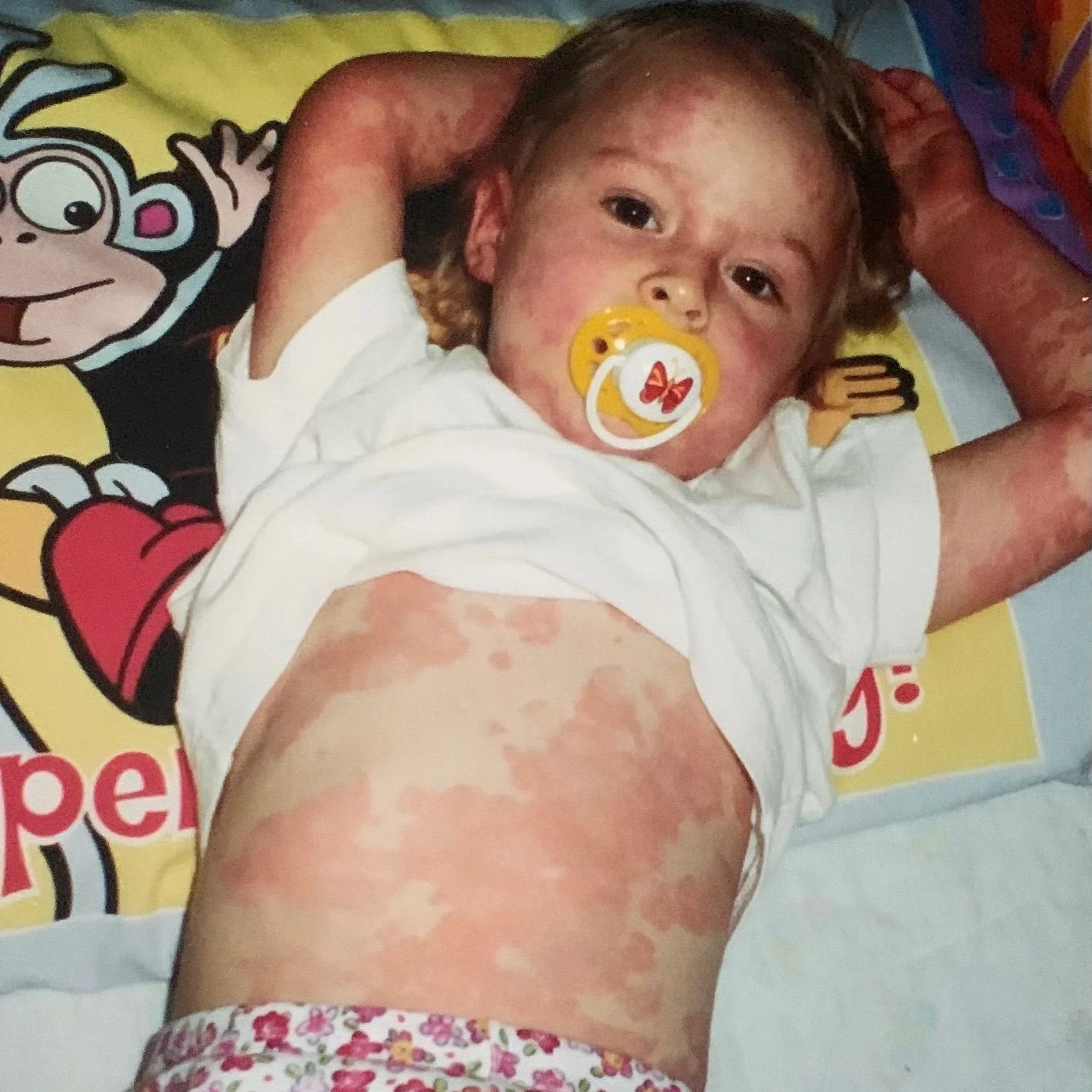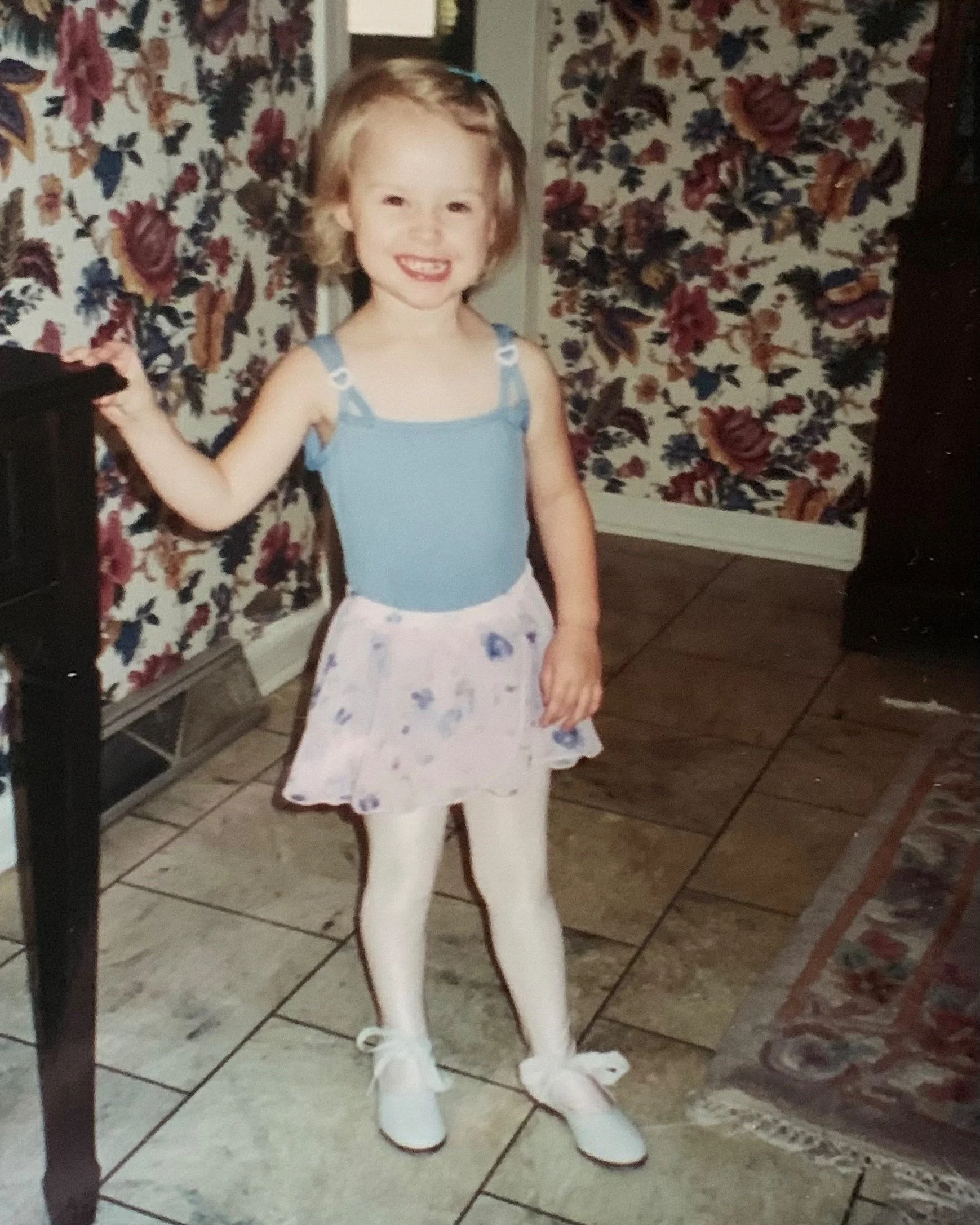Growing Pains
Growing up with an invisible illness made me question every little thing about myself.
I knew something was wrong with my body, but every doctor told me I was healthy.
When I was a toddler, severe allergic reactions and rashes started to become a normal occurrence.
I’d be covered head to toe in hives, spike an insanely high fever and my entire body would swell. All of this would last for several days at a time.
By fifth grade, I started thinking, “Maybe everything is in my head. I’m just dramatic, and I actually want to skip school. What if I actually am doing this for attention?”
I remember sitting in a hospital room right before my gallbladder removal surgery at age 10. My pediatrician said it was the worst case she’s seen; my gallbladder wasn’t functioning at all.
I felt relieved knowing my pain was validated, but deep down, I knew this was only the beginning.
Going to school was excruciating, even as a child. I couldn’t wake up, my body hurt constantly, and I kept getting sick. And worst of all, I didn’t even know why. I thought every kid experienced this.
I’d be up in the middle of the night, sobbing uncontrollably, while holding my legs. I still remember these nights to this day. Fear would fill my eyes, and my mother would be rubbing my shins trying to calm my agony.
“It’s okay, I’m so sorry. I know how this feels,” she’d say. “I had them; your grandpa had them. It’s just a part of growing.”
From the ages 4 until 14, it happened constantly. This wasn’t just an ache, it felt like my muscles were being shredded piece by piece. But hey, that was just growing pains… right?
Looking back, it’s unreal how much suffering I went through on a daily basis.
I wanted to play softball growing up. In the third grade, I hit my first homerun. The sport slowly turned into my life. I was in every summer camp, taking private batting lessons and joining multiple teams.
There was just one problem: I kept getting injured. I couldn’t go a month without hurting myself in the most random ways.
One time I tore all the tissue on the top of my foot by falling up the stairs. Yep, I fell walking UP the stairs. Makes sense.
When I’d yawn, sometimes my jaw would get stuck. My fingers would dislocate as I wrote down my homework assignment. Don’t even get me started on the constant knee dislocations.
I gave up softball after getting injured for the fourth time and tried volleyball. I thought the switch would solve everything, but if anything, it got worse.
My first orthopedic surgery happened when I was 15, and it was one of the hardest procedures I’ve had. I was bedridden for almost two months, and my foot had to go through four rounds of casts. (For those with medical curiosity, it was the posterior tibialis tendon surgery.)
I’ve had four more orthopedic-related surgeries since then. And in total, I’ve been operated on over a dozen times.
All I can say is thank God for pain medication, physical therapy, heating pads and ice packs.
I thought every struggle was typical until I was diagnosed with Ehlers-Danlos at 18.
I went almost two decades without understanding my body. No wonder I felt like an outcast in my own skin; I had no idea who I was.
The unknown was something I had to mourn. I went through 18 years of medical trauma with no relief.
I was crying for help, but my mouth was swiftly shut by doctors. “You’re totally fine,” my pediatrician would say to me. “Your lab work looks good. Just push through it and go back to school.”
There were days I cried in my pediatrician’s office, utterly confused. I’d look over to my mom, and she’d be staring at the ground. “I really don’t know what to do, Abbey,” she’d say.
My breathing stopped in my sleep some nights. I’d wake gasping for air with a pounding headache.
Screaming at the top of my lungs, my mom ran up the stairs knowing exactly what happened. She’d put pressure on my head for hours, changing the ice pack as it grew warm.
I did a sleep study, but you could guess what the results said. There were also countless MRIs and CAT scans, and guess what? Again, everything looked completely healthy. Lucky me.
To this day, I still don’t know why I stopped breathing. All I know is that there are many comorbidities that go with EDS.
After the first eureka moment, every disability started to step into the limelight. At 19, it was POTS and Hashimoto’s disease. At 22, my Hashimoto’s turned into papillary thyroid cancer. And now at 23, we welcome mast cell activation syndrome (MCAS).
Surprise! We discovered a new illness. Don’t worry, there will be a whole post dedicated to MCAS in the near future.
But all of this to say: imagine being a child with unknown, chronic conditions and thinking you were normal. Imagine every doctor looking you in the eye for 18 years and saying, “Everything looks great.”
How am I supposed to trust medical professionals when they dismissed all of my cries for help?
My mother was the only one who believed me. You want to know why? She had the same problems growing up, but instead of finding out she had EDS at 18, she found out in her 50s.
Both of our lives changed when I was diagnosed, and we realized we were right all along. There was something wrong with us.
My story is just one of many within my community. All of our experiences are interwoven into the same point: being disabled means living a life of confusion and isolation.
For a while, you confuse yourself. Doctors see you as an unsolvable puzzle. There are only a few medical professionals that truly understand the intricacies of invisible illness.
Even then, there’s still a disconnect. A doctor will never understand what it’s like to live with a disability until they have one. They can study the symptoms and treatments, but they’ll never know how it feels.
It’s crucial to fight for your health. If you think something is wrong, speak up. If one doctor says you’re being dramatic, go for a second opinion. Fight for a diagnosis; search for medical journals related to your problems.
If there’s one thing I’ve learned through research, it’s that growing pain isn’t a real thing. How ironic is that?
Sincerely, Abbey

